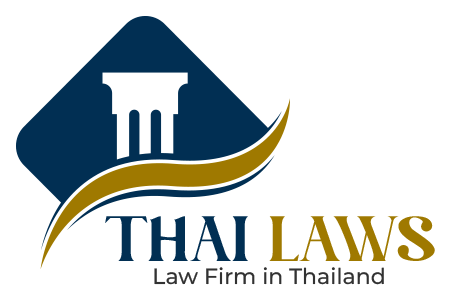Mergers & acquisitions in Thailand are crucial for companies looking to expand, restructure, or enter new markets. The M&A landscape is regulated by several key laws, including the Foreign Business Act (FBA), Public Limited Companies Act, and Securities and Exchange Act. The process of M&A requires navigating complex legal structures, foreign ownership restrictions, and regulatory approvals, particularly in sensitive sectors such as energy, telecommunications, and finance.
1. Legal Framework Governing M&A in Thailand
a) Foreign Business Act (FBA)
The Foreign Business Act governs foreign ownership and participation in specific industries in Thailand. Foreigners are restricted in industries such as media, telecommunications, banking, and agriculture, unless they obtain a Foreign Business License. The FBA categorizes industries into three lists:
- List 1: Completely prohibited for foreign investment (e.g., agriculture, land trading).
- List 2: Requires special Cabinet approval for foreign participation, as it concerns national security (e.g., mining, telecommunications).
- List 3: Industries where Thai nationals are not yet competitive, requiring a Foreign Business License for foreign ownership (e.g., construction, retail).
Foreign companies engaging in M&A transactions in these industries must ensure compliance with these restrictions, often necessitating creative legal structures like joint ventures or majority Thai ownership to comply with local laws.
b) Public Limited Companies Act
The Public Limited Companies Act governs the rules for corporate mergers and acquisitions of public companies. For public companies listed on the Stock Exchange of Thailand (SET), the Act requires:
- Shareholder approval: M&A transactions, especially those that change the corporate structure or dilute ownership, must be approved by shareholders.
- Disclosure requirements: Public companies must disclose material information to their shareholders and the Securities and Exchange Commission (SEC) during M&A negotiations.
c) Securities and Exchange Act
The Securities and Exchange Act regulates M&A activities involving publicly traded companies. It outlines the procedures for takeovers, share purchases, and tender offers to ensure transparency and protect minority shareholders. The Securities and Exchange Commission (SEC) oversees these transactions and ensures compliance with securities regulations.
2. Types of M&A Transactions in Thailand
There are several types of M&A transactions in Thailand, each with its legal and strategic considerations:
a) Share Purchase
In a share purchase, the acquiring company purchases a controlling interest in the target company by acquiring its shares. This is the most common method in Thailand for acquiring a company, especially in sectors that allow foreign ownership. The buyer assumes control of the target company’s assets and liabilities.
b) Asset Purchase
In an asset purchase, the buyer acquires specific assets of the target company, such as real estate, intellectual property, or machinery, without assuming its liabilities. This structure is often used when the buyer wishes to avoid legal or financial liabilities associated with the target company.
c) Mergers
A merger involves two or more companies consolidating into a single entity, with the merged companies ceasing to exist. Mergers in Thailand require approval from both companies’ shareholders and are generally more complex due to the legal and financial integration required.
d) Takeovers
A takeover occurs when a company acquires control over another company, often through purchasing a majority of its shares. A friendly takeover is when the target company’s board agrees to the acquisition, while a hostile takeover involves the acquiring company bypassing the board and appealing directly to shareholders.
3. Foreign Participation in M&A Transactions
a) Foreign Ownership Limitations
Thailand’s Foreign Business Act limits foreign ownership in many sectors to 49%. As a result, foreign investors must often partner with Thai nationals or Thai-majority companies to structure joint ventures. In some industries, such as telecommunications and finance, majority Thai ownership is a legal requirement.
b) Exemptions to Foreign Ownership Restrictions
Some exemptions allow foreign companies to bypass ownership restrictions:
- Board of Investment (BOI) Promotion: Companies that are promoted by the BOI can receive incentives such as 100% foreign ownership, tax exemptions, and streamlined visa processing for foreign employees.
- Treaty of Amity (U.S.-Thailand Treaty): Under this treaty, U.S. companies are allowed to hold 100% ownership in most sectors, with few exceptions like land ownership, communications, and natural resources.
c) Foreign Business License
For sectors covered by the FBA, foreign investors must obtain a Foreign Business License to acquire a controlling interest. The application process for the license involves demonstrating the economic benefits of the investment, including technology transfer, job creation, and other contributions to the Thai economy.
4. Key Steps in the M&A Process
The M&A process in Thailand generally follows these steps:
a) Preliminary Due Diligence
Conducting thorough due diligence is critical before completing an M&A transaction. This involves reviewing the target company’s financial statements, legal documents, contracts, liabilities, and assets. Due diligence ensures that the acquiring company fully understands the risks and rewards of the transaction.
b) Valuation
Both parties must agree on the value of the target company or its assets. A detailed valuation of the company’s assets, liabilities, and market position is necessary to determine the purchase price. In some cases, professional appraisers or financial analysts are employed to provide objective valuations.
c) Negotiation and Contract Drafting
The terms of the acquisition or merger must be negotiated, including the purchase price, payment structure, transfer of ownership, and legal obligations. Contracts must also address issues such as liabilities, employee retention, and the transfer of intellectual property.
d) Regulatory Approvals
Certain M&A transactions require regulatory approval from government bodies such as the Ministry of Commerce, Board of Investment (BOI), and SEC. These approvals ensure that the transaction complies with Thai laws, particularly concerning foreign ownership and competition law.
e) Closing and Integration
Once all legal documents are signed and regulatory approvals are obtained, the acquisition or merger is closed. The final step is the integration of the two companies’ operations, management, and systems. Successful post-merger integration is critical to realizing the expected synergies from the transaction.
5. Challenges in Thai M&A Transactions
a) Regulatory Hurdles
Foreign businesses face significant regulatory hurdles, particularly in industries with strict ownership limits. Securing a Foreign Business License can be a lengthy and complex process, particularly in sensitive sectors like telecommunications or energy.
b) Cultural and Legal Differences
M&A deals involving foreign investors often face challenges related to cultural differences and local business practices. These challenges can complicate negotiations, particularly when it comes to corporate governance or management integration.
c) Foreign Exchange Regulations
Thailand has foreign exchange controls that can complicate cross-border M&A transactions. The Bank of Thailand oversees the movement of foreign currency in and out of the country, and certain capital flows must be reported to the central bank.
Conclusion
Mergers and acquisitions (M&A) in Thailand offer significant opportunities for both domestic and international companies. However, the complexity of the legal framework, foreign ownership restrictions, and regulatory requirements makes it essential to have a strong understanding of Thai business law. Thorough due diligence, strategic partnerships, and careful navigation of Thai regulations are critical to successful M&A transactions in this vibrant and rapidly growing market.



